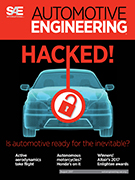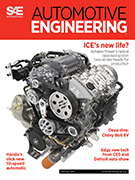Technical Paper
Information Security Risk Management of Vehicles
2018-04-03
2018-01-0015
The results of this work is allowed to identify a number of cybersecurity threats of the automated security-critical automotive systems, which reduces the efficiency of operation, road safety and system safety. ...According to the evaluating criterion of board electronics, the presence of poorly-protected communication channels, the 75% of the researched modern vehicles do not meet the minimum requirements of cybersecurity due to the danger of external blocking of vital systems. The revealed vulnerabilities of the security-critical automotive systems lead to the necessity of developing methods for mechanical and electronic protection of the modern vehicle. ...The law of normal distribution of the mid-points of the expert evaluation of the cyber-security of a modern vehicle has been determined. Based on the system approach, ranking of the main cybersecurity treats is performed.




